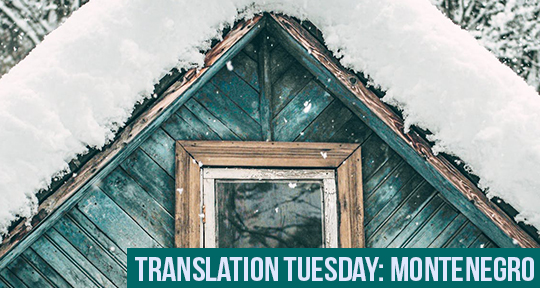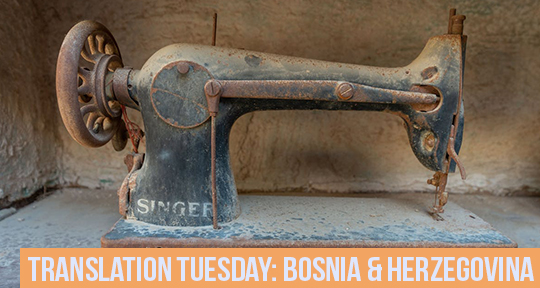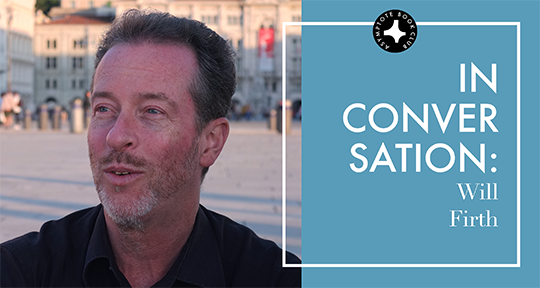The apocalypse has always been a popular topic in literature, but Andrej Nikolaidis’ Anomaly is no regular walk around the end of the world. From one of the Balkans’ most fearless voices, the last day of humanity sees a complete collapse of the timeline as everything that has ever happened begins to occur at once. All sins rise to the surface, the dead return to testify, and the Devil himself makes wry commentary on all the fluff and frivolity we use to conceal our deepest secrets. Incisive, indicting, but not without compassion, Anomaly brilliantly exhibits the vital and intrepid nature of Nikolaidis’ work, which, coupled with a poetically lucid style and explosive intelligence, provoke readers to consider our world’s most central and incendiary contradictions. As our Book Club selection for the month of April, we had the opportunity to talk to Will Firth, the translator of Anomaly, about his remarkable work in bringing Nikolaidis’ writing to English, and what it means to be both translator and advocate.
The Asymptote Book Club aspires to bring the best in translated fiction every month to readers around the world. You can sign up to receive next month’s selection on our website for as little as USD20 per book; once you’re a member, join our Facebook group for exclusive book club discussions and receive invitations to our members-only Zoom interviews with the author or the translator of each title.
Sofija Popovska (SP): Anomaly isn’t the first novel by Andrej Nikolaidis that you’ve translated, could you tell me more about how you two met and began to collaborate?
Will Firth (WF): I was first drawn to Andrej’s polished prose, coupled with his intelligent black humor—or cynicism as some would call it, and the remarkable imagery that he uses in all of his books. It’s basically the dense, intense intellectual challenge of his writing that I really like.
I didn’t actually meet him until 2012; I had translated his first novel, The Coming, and we had a launch event in London, at the now defunct Europe House. It’s a typical situation, actually; I don’t always meet authors before I translate their books, but I’m in touch with them while I’m in the process of translating, and several have become friends, which is a nice spin-off.
SP: You mentioned in an email to me that Andrej’s written about the apocalypse a lot, and this isn’t the first apocalypse-themed book he’s written. Has he said anything about why he loves this theme so much? And is Anomaly sort of a step—or a conclusion—in his literary project?
WF: Well, I don’t actually know what his greater literary project is. I’m not sure what he has in mind for the next few years and decades, but he certainly is fascinated by this idea of the apocalypse. In a text that I’ve quoted in various places, he calls himself an apocalyptist. He really feels it as a part of his existence: that the world we live in is doomed, in a way, and that better things, greater things, different things can arise from that.
But he’s playing with this idea all the time in his different books, and approaching the topic of the apocalypse from different angles. I’m not really sure why he’s so fixed on it, but it probably has a bit to do with his intellectual interests and the writers he’s into—Lacan and Slavoj Žižek, the post-Marxist, fairly radical writers.
But his personal experience of having to flee from Sarajevo in 1992 as a youth was certainly scary, if not traumatic. Add to that the experience of war, of systemic change, of being uprooted, being a refugee—and all sorts of other things. I mean, think of the massive earthquakes that the whole Balkan region has experienced: Montenegro in 1979, and Macedonia in 1963. Those are things that create a sense of insecurity, a sense that this world is dangerous and has its limitations, and we could be dead tomorrow. Those feelings perhaps flow into his interest in the apocalypse. READ MORE…



